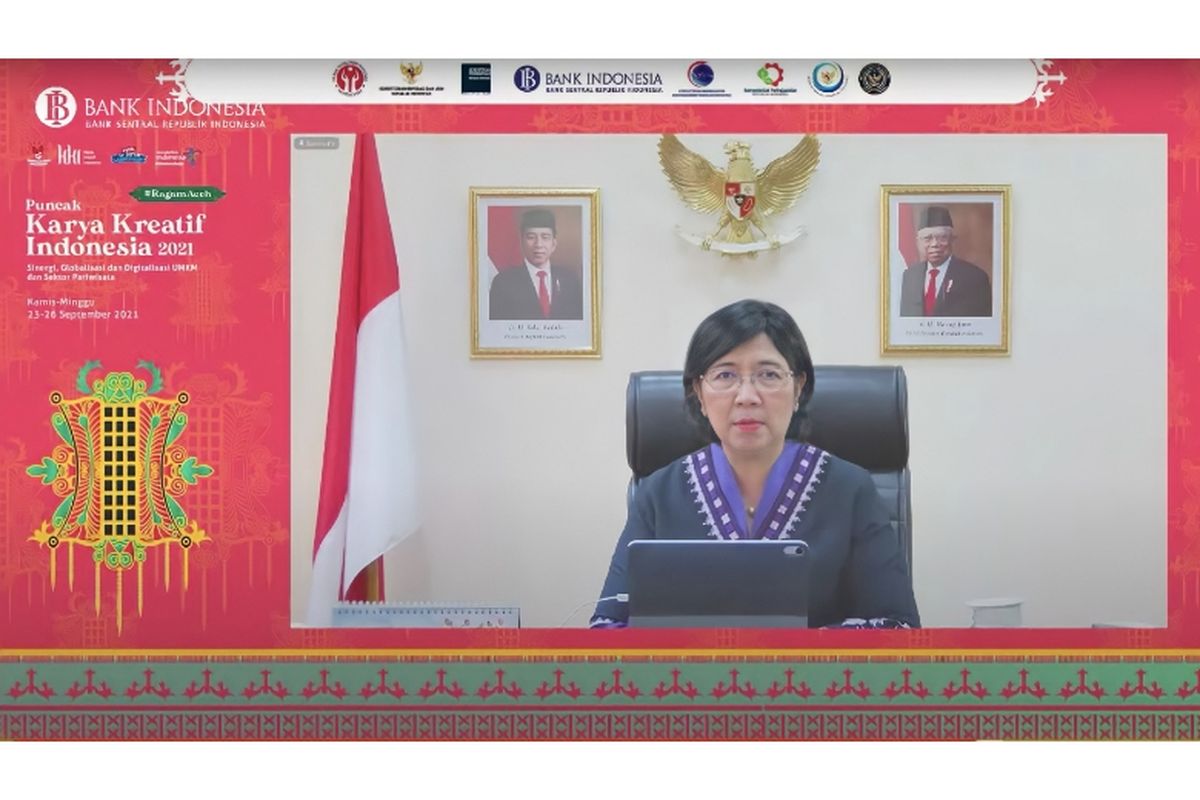Renewable Energy Transition Requires $3.5 Trillion in Investment Per Year: Bank Indonesia

JAKARTA, KOMPAS.com – Indonesia’s central bank said that the transition of energy from fossil fuels to renewables requires large funds, which is expected to reach $3.5 trillion annually.
Bank Indonesia (BI) senior deputy governor Destry Damayanti said that the cost of climate change is higher than the costs of handling the 2008 global crisis and the Covid-19 pandemic. The cost of handling extreme weather alone has reached $5.1 trillion in the last 20 years.
“The International Energy Agency estimated that a low-carbon transition could reach about $3.5 trillion in energy sector investment annually. This amount is double the current rate,” Destry said at a seminar titled “Building a Resilient Sustainable Finance” on Monday, Feb. 21.
However, the pandemic must end immediately. If not well managed, countries would face several climate change threats such as extreme weather, clean water crisis, forest fires, and other environmental disturbances. Furthermore, it could disrupt monetary and financial system stability.
Also read: Indonesia’s Trade Balance Surplus Maintains Economic Resilience, Says Central Bank
According to a study conducted by the Swiss Institute, the earth’s temperature will increase by 3.2 degrees Celsius and cut potential global gross domestic product (GDP) by 80 percent if no steps will be taken.
However, if each country achieves the Paris climate agreement, the maximum temperature increase can be reduced from 3.2 degrees Celsius to two degrees Celsius. While the global GDP could shrink by four percent.
“To control climate change and further reduce the risk of natural disasters, great efforts must be taken and a massive reallocation of funds is required to represent an unprecedented potential risk,” Destry said.
Currently, she added, countries have realized the importance of global green transformation. This was presented during COP26 in November 2021 as world leaders agreed to overcome climate change seriously.
Also read: Can the EUs climate change plan work in Southeast Asia?
At the meeting, all countries must contribute to reducing greenhouse gas emissions to net-zero emissions by 2050. “To deal with this serious matter, there is a need to have a sustainable financial design,” she said.
As Indonesia serves as G20 president this year, the country has set the G20 sustainable financial roadmap on three main topics. First, to develop a framework for financial transition and increase the credibility and commitment of financial institutions. Second, to increase sustainable financial instruments by focusing on accessibility and affordability. Third, to make policies that encourage financing and investment to support the transition.
“This policy framework is well-designed, well-executed, and well-targeted to bring the public and private sector to collaborate in overcoming the climate crisis in the future,” said Destry.
(Writer: Fika Nurul Ulya | Editor: Erlangga Djumena)
Simak breaking news dan berita pilihan kami langsung di ponselmu. Pilih saluran andalanmu akses berita Kompas.com WhatsApp Channel : https://www.whatsapp.com/channel/0029VaFPbedBPzjZrk13HO3D. Pastikan kamu sudah install aplikasi WhatsApp ya.































